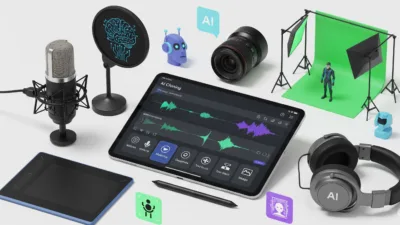As the creator economy continues to thrive, one trend is becoming undeniable and that is community is the new audience. Creators are no longer just chasing views and followers. They’re building private communities to deepen engagement, deliver exclusive content, and generate recurring revenue. But with so many platforms available, a common question arises: What’s the best platform to start a community as a creator?
In this post, we’ll break down the top community platforms for creators, compare their features, and help you choose the right one based on your niche, monetization strategy, and audience size.
Why Creators Are Shifting to Community Platforms
Audience algorithms are unpredictable. Organic reach is down across platforms like Instagram and YouTube. To create a sustainable creator business, community-led models offer:
- Deeper relationships with superfans
- Recurring income via memberships or courses
- Ownership over user data and communication
- Higher retention compared to casual social media followers
Whether you’re a coach, educator, YouTuber, or writer, a community platform gives you more control and long-term growth potential.
Key Features to Look For in a Creator Community Platform
Before choosing a platform, make sure it supports:
- Gated content access (free, paid, or tiered)
- Community discussion spaces (forums, feeds, chat)
- Live events or video integration
- Monetization tools (subscriptions, upsells)
- Mobile-friendly experience
- Ownership of user relationships
- Analytics and engagement tracking
Top 5 Community Platforms for Creators
1. Skool
Best for: Course creators, educators, niche experts
Why it’s great: Skool offers a clean, distraction-free experience with built-in courses, community forums, gamification, and calendar events. It’s ideal if you want an all-in-one system for running a paid community.
Pros:
- Gamified community features
- Stripe integration for paid groups
- Simple, user-friendly UX
- One-time or recurring payment options
Cons: - No in-depth customization
- Limited third-party integrations
Price: $99/month per community
2. Circle
Best for: Coaches, consultants, multi-tier communities
Why it’s great: Circle combines community discussions, live streams, and courses all in one platform. It supports multiple spaces, meaning you can have public, private, and secret groups in one place.
Pros:
- Highly customizable
- Native live video and events
- Zapier and API integration
- Easy to brand and scale
Cons: - Slight learning curve
- Cost increases with features
Price: Starts at $49/month
3. Mighty Networks
Best for: Lifestyle brands, movement builders, paid memberships
Why it’s great: Mighty Networks excels in community-driven learning, especially for creators running events, courses, and discussions. It also supports white-label mobile apps.
Pros:
- Member directories
- Rich activity feeds and challenges
- Events, courses, and group chats
- Custom mobile app option
Cons: - Complex setup for beginners
- Limited analytics on lower tiers
Price: Starts at $33/month, custom pricing for Pro apps
4. Discord
Best for: Tech-savvy creators, gaming, Web3, indie communities
Why it’s great: Discord is free, fast, and highly customizable. It’s the go-to for communities that thrive on real-time chat, bots, and gamified roles.
Pros:
- 100% free to start
- Unlimited members
- Role and permission management
- Voice, video, and screen sharing
Cons: - Overwhelming for non-tech users
- Harder to monetize directly
Price: Free (Monetization via third-party tools like Ko-fi or Patreon)
5. Geneva
Best for: Creators who want structured but casual engagement
Why it’s great: Geneva feels like a modern blend of Slack and Discord but is non-gamified and aesthetically clean, perfect for lifestyle creators, artists, or low pressure community hubs.
Pros:
- Free to use
- Rooms for chat, audio, video
- Good mobile UX
- Great for casual engagement
Cons: - No built-in monetization
- Less automation than Discord
Price: Free
Which Platform Should You Choose?
Choose Skool if:
- You teach or sell online courses
- You want plug-and-play community tools
- You’re ready to monetize with minimal setup
Choose Circle if:
- You need flexibility across community tiers
- You want to host both public and premium members
- You plan to scale beyond 1 course or community
Choose Mighty Networks if:
- You’re building a lifestyle brand or movement
- You want to host courses and events in one place
- You care about branded mobile experience
Choose Discord if:
- You already have an engaged audience
- You like real-time conversation and automation
- You want to build a casual or free flowing group
Choose Geneva if:
- You want a relaxed, non-techy environment
- You’re testing out the idea of a community
- You want a free tool to start small
Bonus Tips for Launching Your Creator Community
- Start with a single goal: Support group, content hub, or paid membership.
- Offer early access or beta invites: Build FOMO and get real feedback.
- Seed with content: Upload posts, questions, and resources before inviting people.
- Engage consistently: Show up with polls, challenges, and live sessions.
- Collect testimonials and case studies: For social proof and growth.
Conclusion: The Best Creator Community Platform Is the One You’ll Use Consistently
There’s no single “best” platform for every creator. The right platform depends on your audience, goals, tech skills, and monetization model. If you want fast monetization with minimal setup, Skool or Circle may be ideal.
If you’re community-first and monetization-second, Discord or Geneva can help you build deep relationships. The key is to start small, stay consistent, and let your community evolve.



